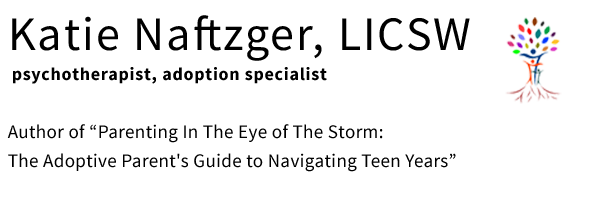(Disclaimer: This is a general opinion piece. Just had to get it off my chest! To learn more about mental health and adoption, check out my book.)
I decided to watch ’13 Reasons Why’ after hearing from parents of teens I was working with that their teen wanted to or had already watched it. Some saw bits and pieces, often the bits that were the most graphic, disturbing and controversial. Parents were scared about what this could do to their teen. After all, their teens were already emotionally vulnerable, which is why they were seeing me for therapy in the first place.
HOLLYWOOD
The plot seems absurd, contrived and glamorous. Certainly, there has been much uproar about the showing of how the character, Hannah, killed herself. Depicting details of how a suicide unfolds raises suicide risk. This is well-documented. Also, the absence of mental health was bizarre given that research suggests that around 90% of those who die from suicide had a diagnosable mental disorder.
IRRESPONSIBLE
Clearly, the goal of the show was to expose the issues, not to educate, or model how things could be different or better. In my opinion, this is irresponsible! Many have commented on the fact that the adults in the show were utterly useless, incompetent and in some ways, harmful. Having adults depicted in this manner undermines our message as parents, teachers, caretakers, to tell someone, preferably an adult.
WHAT THEY COULD HAVE DONE BETTER
There are many ways the show could have at least tried to mitigate these issues. Along with the warning about graphic material, they could have also included a reminder that this is fictional, not related to anyone in real life. They could have edited it differently so that it would be easier to avoid the graphic scenes. And, they could have stated an age limit such as 13 with parent’s permission, as they do with movies. I’m not saying that some tweens wouldn’t still watch it, but at least the message would be clear. I’m especially upset about tweens and teens who haven’t had sex yet. To have this be their first exposure to it is inappropriate.
TRUTHS
Although there was much in the series that was distorted, there were also some truths in it. For example, although they distorted parent’s obliviousness, you’d be surprised at just how little teens tell their parents about their lives. Not to be overly dramatic, but often what teens tell parents is just the tip of the iceberg. The series captured this piece. The other thing it is captured, is how fast everything goes in high school. It’s so fast. The rumors, the bullying, the grades, the cliques, the drugs, etc. It’s all just whizzing by. It’s hard for them, let alone for us, to keep track. It really is a storm.
“REASONS”
I recently attended a forum in my town in which there was a discussion about this series. One of the members of the panel was a high schooler. She said (paraphrasing), “Hannah had 13 reasons that she killed herself, but in reality, you might have 5 reasons, or 1 reason, or no reason.” It’s almost easier for teens to be depressed when there’s a clear precipitant – their father died, or their parents got divorced, or abandonment issues, etc. That’s hard and really painful. But, it can be just as hard and even sometimes harder to not have a reason at all. Sometimes you can have a great life, lots of friends, sports, good grades, tons of future potential, great family, and still want to kill yourself. When adults keep asking, why, why, it can just make them feel more guilty. Perhaps it’s a genetic predisposition to depression, which often comes to fruition in the teen years. Maybe they don’t have a “good” reason. And, if that’s the case, badgering them to figure it out will just make them feel more guilty.
REGRET
One of the other things that the show missed was the common experience of regret. Often those who attempt suicide experience regret at the last minute, which Hannah seemingly did not. Kevin Briggs wrote a book, “Guardian of the Golden Gate – Protecting the Line Between Hope and Despair.” His job was to try to prevent people from jumping off the Golden Gate Bridge. In his foreword, “Most people who commit suicide don’t actually want to die. The few who have survived the 220 foot fall from the Golden Gate Bridge all agree that the moment they let go of the railing, they wanted to live.”
OPPORTUNITY FOR CONVERSATION
Although the series did not necessarily move the conversation forward about mental health, it did provide a way to talk about suicide, rape and other taboo, upsetting issues that happen too much. Often, teens watch stuff that we as adults aren’t privy too. We don’t have to depend on their report of whatever is going on. We can see it for ourselves and speak in a thoughtful, connected, informed way.

Leave a Reply